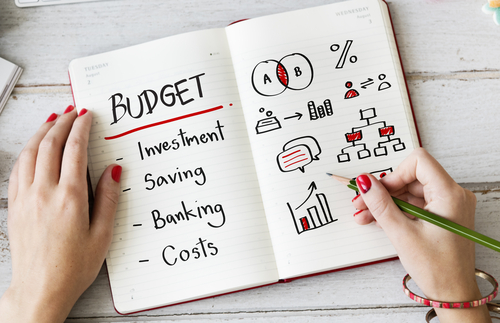A key part of managing your personal finances is making sure that your financial records are well organized. Whether it is a Social Security card for purposes of wage reporting or utility bills to show proof residency, there may be times when you need to quickly locate a financial document or record.
You do not want to keep your records like Peter Le Fleur did in Dodgeball! That is not impressive!
By taking the time to tidy up and organize your financial records, you will be able to find exactly what you need exactly when you need it.
What Documents should You Keep?
Are you the type who keeps stuff because you never know when you might need it? Your home office or desk is probably overflowing with documents that you do not need or your closet like Peter Le Fleur’s closet! One of the first things you need to ask is “Why do I need to keep this?” – this will help you determine what records to keep.
You should keep documents that are difficult to obtain, like:
- Proof of identity
- Insurance claims
- Legal contracts
- Tax returns
On the other hand, if you have documents that you can duplicate easily, such as credit card and online banking statements, you probably do not need to keep hard copies since that will add up year after year.
How Long should You Keep Your Records?
Generally, you should keep your financial documents and records only for as long as necessary. For example, credit-card and ATM receipts should be kept only temporarily, until they have been reconciled with your credit-card and/or bank statement. On the other hand, if a document is difficult to replace and/or legal in nature, you may want to keep it for a longer period or even for an indefinite period. And not wide out in the open either; file it away in your office desk, closet, or even safe.
There may be more specific timetables for some financial records. For example, it is generally recommended by the IRS that taxpayers maintain federal tax returns and the documents that support them for at least 3 years up to 7 years from the date of filing. There may be certain circumstances that warrant keeping your tax records for an indefinite period of time as somewhat insinuated above.
Here is a list of some recommendations for the time period you should keep specific documents:
Records to Keep for 1 Year or Less
- Bank or credit union statements
- Homeowners and auto insurance policies
- Utility bills
- Credit card statements
Records to Keep for Over a Year
- Mortgage contracts
- Tax returns and supporting documents
- Property appraisals
- Receipts for home improvements and major purchases
- Annual investment and retirement statements
Records to Keep for an Indefinite Period
- Social security card
- Birth, death, and marriage certificates
- Citizenship and military discharge documents (DD-214 for those exiting the military)
- Adoption records
Keep in mind that these are general guidelines. Based on your personal circumstances, you may need to keep these documents for longer or shorter periods of time.
Where should You Keep Your Records?
You could use a set of labeled folders for your financial records and keep them in a file drawer. However, for more critical documents, it may be better to keep the folders in a fire-resistant safe (as somewhat mentioned already as well), file cabinet, or safe-deposit box.
If your space is tight and you need to make sure that there is minimal clutter, electronic storage for some financial records may be a stellar idea (certainly for some financial tax documents). Online documents can be saved and you can scan documents to convert them into a digital version of themselves. Backup copies should be kept on a portable hard drive or a storage device (USB for instance). You should also make sure that your computer files are properly secured.
Another option is a cloud storage service. Your loaded information gets encrypted and stored remotely. Make sure that you use a reliable company if you are learning towards cloud storage – pick a solid company that offers technical support and automatic backup.
Once you have found a place to store your financial records, organizing and storing them according to specific categories – e.g., proof of identity, banking, etc. – may be helpful since it will make it easier for you to access your records when you need to.
Remember that your financial records are important documents that need to be properly maintained. You never know when you might need them. Keep the tips mentioned above in mind and make sure that your financial records are safe, secure, and easily accessible whenever you need them.





















